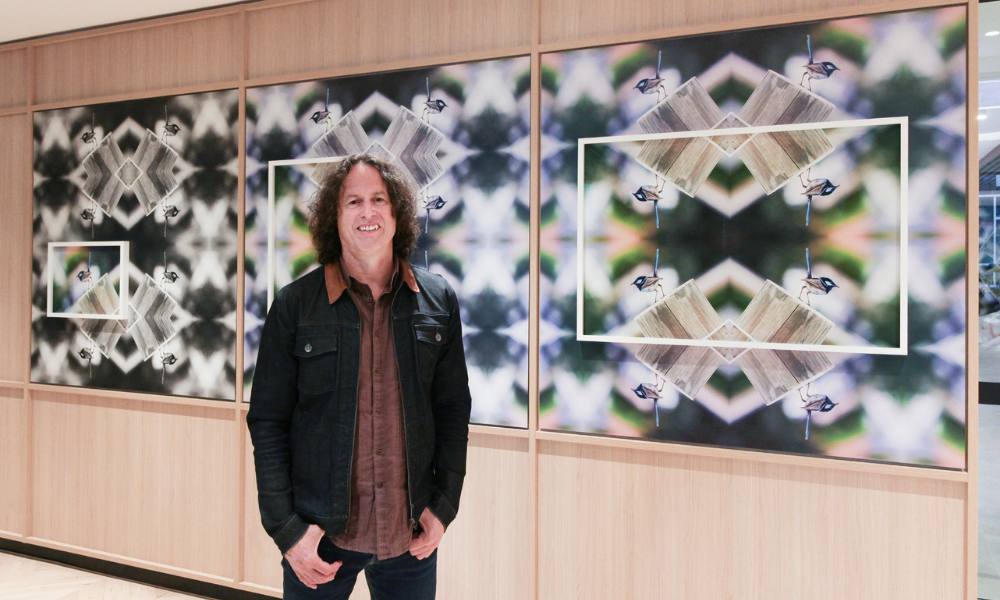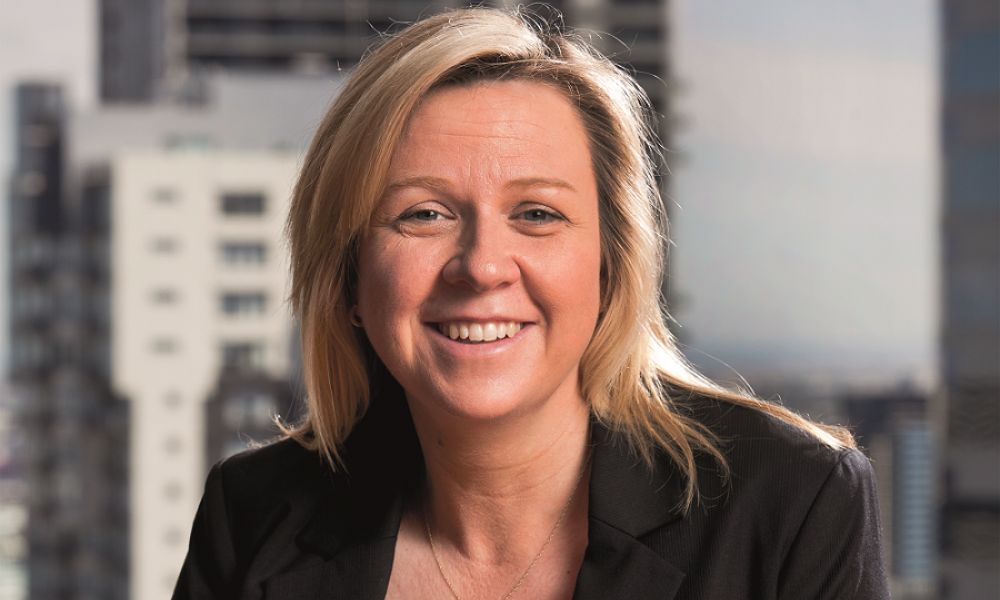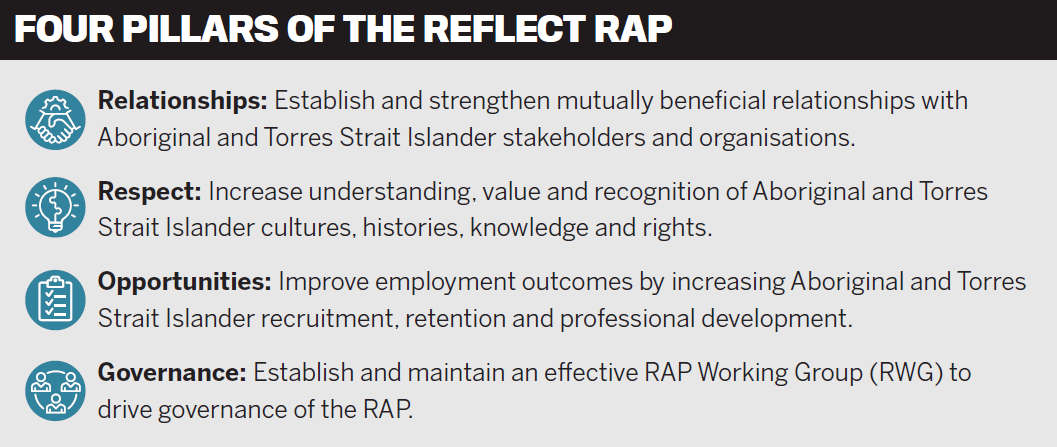Liberty is dedicated to reconciliation with Indigenous Australians and has formed an action plan to attain that goal, says chief people officer Anne Bastian

Australia has come a long way since its First Nations peoples were granted the right to vote in federal elections in 1967.
The government has apologised for policies that led to thousands of Aboriginal and Torres Strait Islander children – known as the Stolen Generations – being removed from their parents. Efforts are being made to close the gap between Indigenous and non-Indigenous Australians when it comes to life expectancy, health, education, housing, and incarceration rates. There is also a strong push to recognise Aboriginal and Torres Strait Islander peoples in the nation’s constitution, and in recent years there has been a wider acknowledgement and celebration of First Nations cultures.
But it’s clear that to create a better understanding of First Nations cultures and meaningful dialogue between Indigenous and non-Indigenous Australians, it will require the efforts of individuals and organisations, not just the government.
Liberty chief people officer Anne Bastian (pictured below) says inclusion has always been important to Liberty and the company is proud to have “built and maintained an incredibly diverse and inclusive culture”.

“We recognise that being truly inclusive requires a commitment to reconciliation,” she says. “It’s not possible to create an inclusive society if First Nations peoples continue to experience significant discrimination and marginalisation.
“For Liberty, intending to contribute to a reconciled Australia is not enough – we must be accountable for our contribution to reconciliation.”
Bastian says Liberty is only at the beginning of its reconciliation journey, but its vision is clear. “It begins with creating an organisation that understands and respects Aboriginal and Torres Strait Islander cultures. At Liberty, we believe our community has a role to play in reconciliation, and we are keen to do our part.”
Working closely with Reconciliation Australia, Liberty has committed to a formal Reconciliation Action Plan (RAP) designed to build awareness and provide tangible benefits for Aboriginal and Torres Strait Islander peoples. A RAP is a strategic document that outlines practical plans for action.
Bastian says Liberty’s inaugural Reflect RAP sets out a purposeful agenda with 33 deliverables identified within four pillars: relationships, respect, opportunity and governance. “The knowledge we gather through actioning these deliverables – and the relationships we form – will enable us to actively contribute to reconciliation.”
Liberty’s RAP follows Reconciliation Australia’s well-established framework, which aligns with its own organisational values: fair, learning, accountable, invested and resourceful. “We consider this our first step in building respectful and enduring relationships with Aboriginal and Torres Strait Islander communities,” Bastian says.
Liberty is focusing on how it can partner with Aboriginal and Torres Strait Islander communities to create economic equity. It has partnered with the Kinaway Aboriginal Chamber of Commerce to connect and build relationships with Aboriginal and Torres Strait Islander businesses. It will also soon be partnering with Supply Nation, Australia’s leader in supplier diversity.
The non-bank provides an annual online SBS Inclusion Program on Aboriginal and Torres Strait Islander inclusion for all staff to complete. Bastian says the course is designed to help people understand the importance and advantages of Indigenous cultural diversity.
“In consultation with our internal Reconciliation Working Group, we have also launched a policy that specifically focuses on the needs of Aboriginal and Torres Strait Islander staff members,” she says. “It supports them to attend culturally significant events and ceremonies that they will have during certain times.”
Liberty’s RAP also features a major site-specific commission titled Cultural Reflections – Infinite Interconnections by the highly regarded Barkindji artist Kent Morris (pictured top with the artwork). Morris says the work “speaks of infinity, interconnection, respect and reconciliation through a First Nations lens”.
Bastian says as Liberty puts the Reflect RAP into action, “we gain a greater understanding of the needs of First Nations peoples”.
“We also increase our awareness of what is required of us to provide a supportive and inclusive environment. Everything we learn guides us to make changes in our business that will strengthen our ability to have an impact on reconciliation.”
The RAP deliverables to date have enabled staff to develop greater cultural awareness and professional development practices, Bastian says. “From our NAIDOC Week dance workshop to a moving Stolen Generations presentation, staff have enjoyed listening to and embraced a range of perspectives on reconciliation.”
One of the key actions of Liberty’s Reflect RAP is to improve employment outcomes by increasing Aboriginal and Torres Strait Islander recruitment, retention and professional development.
“First Nations peoples are welcome to apply for any advertised role with Liberty, knowing that our application process allows us to respond in a culturally appropriate manner,” says Bastian. “By continuing to build a welcoming and inclusive culture, we hope to extend career opportunities and encourage more First Nations people to join Liberty.”
Liberty’s internal initiatives support a range of diversity dimensions, including gender, age, disability, LGBTQIA+ and cultural diversity.
“We’re continuing our work towards greater LGBTQIA+ awareness and advocacy at Liberty, and our Pride Network is helping to lead the way,” says Bastian.
Set up in 2019, the network aims to provide a safe space for LGBTQIA+ team members to support one another.
Liberty’s new cultural leave policy allows individuals to exchange an existing public holiday with a day that’s more relevant to their beliefs and traditions. There is also a policy designed to support staff and their partners who are undergoing fertility treatment. It acknowledges the challenges that couples face and offers compassion, understanding and support.
Bastian says financial services has historically been a male-dominated industry, and Liberty is committed to gender equality and empowering its female leaders with guidance, training and support.
“We work closely with the Workplace Gender Equality Agency to monitor and improve opportunities for women across our organisation.”
Female staff are supported through a range of programs and partnerships with Work180, Grad Girls and Diversity Council Australia.
“Liberty is also a proud sponsor of MFAA Opportunities for Women,” says Bastian.




